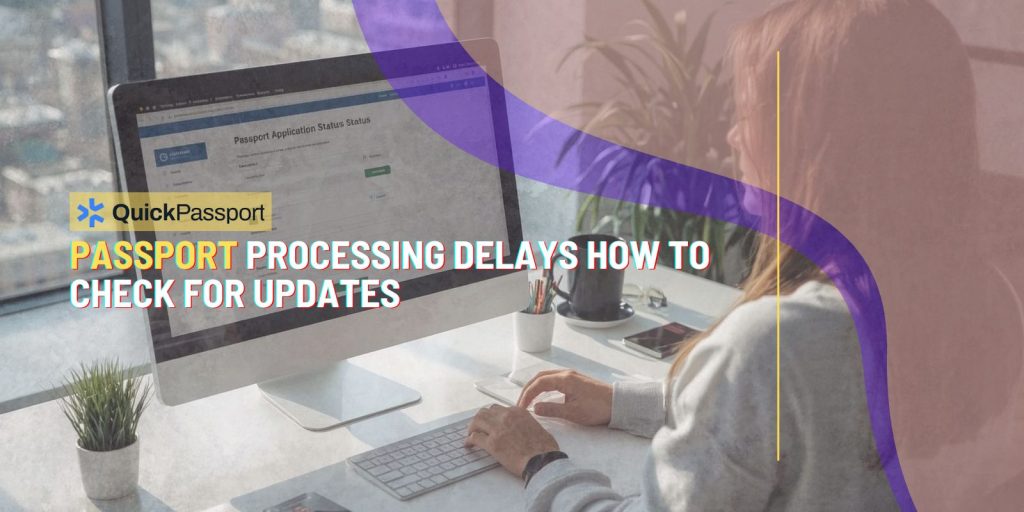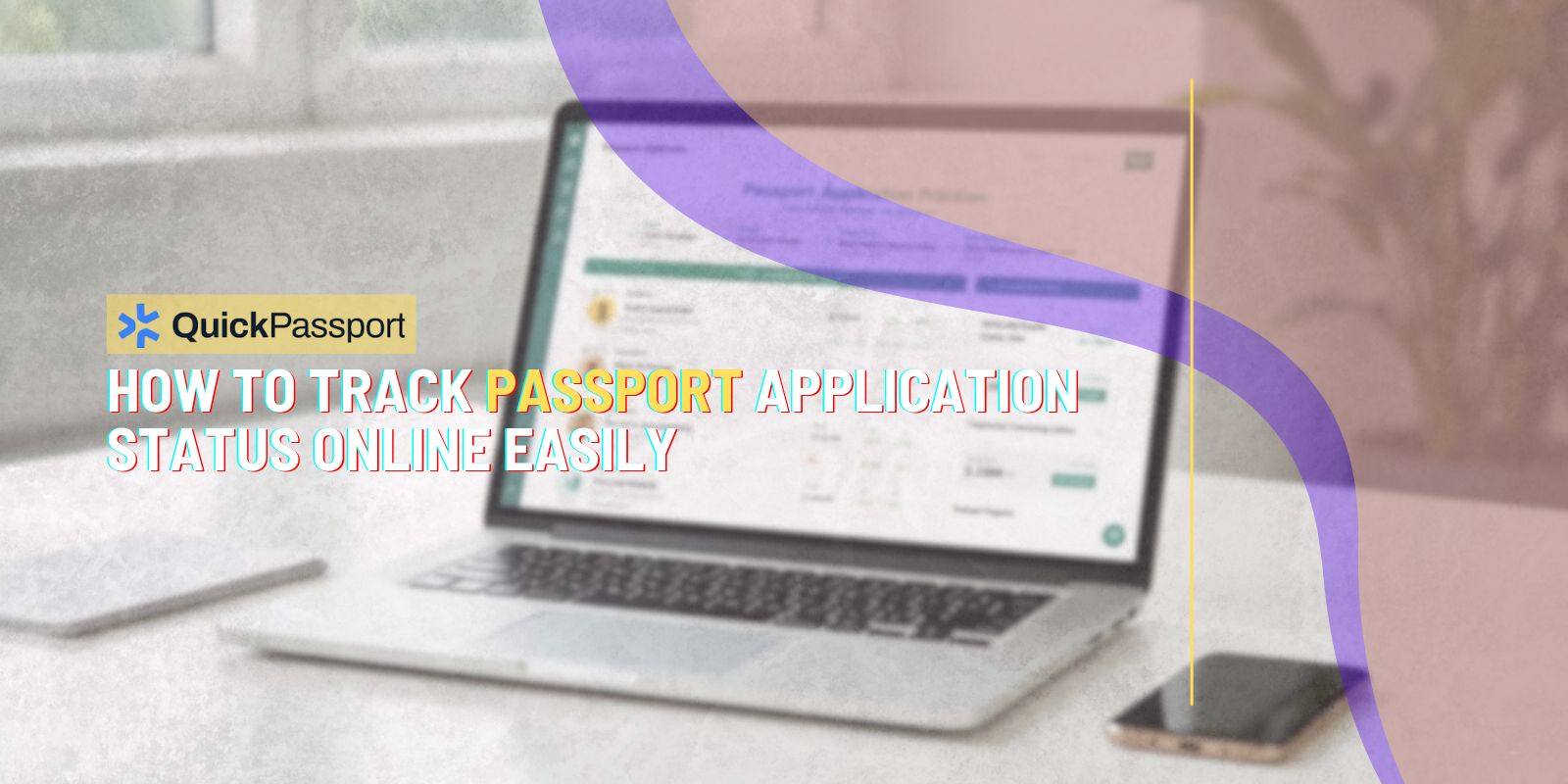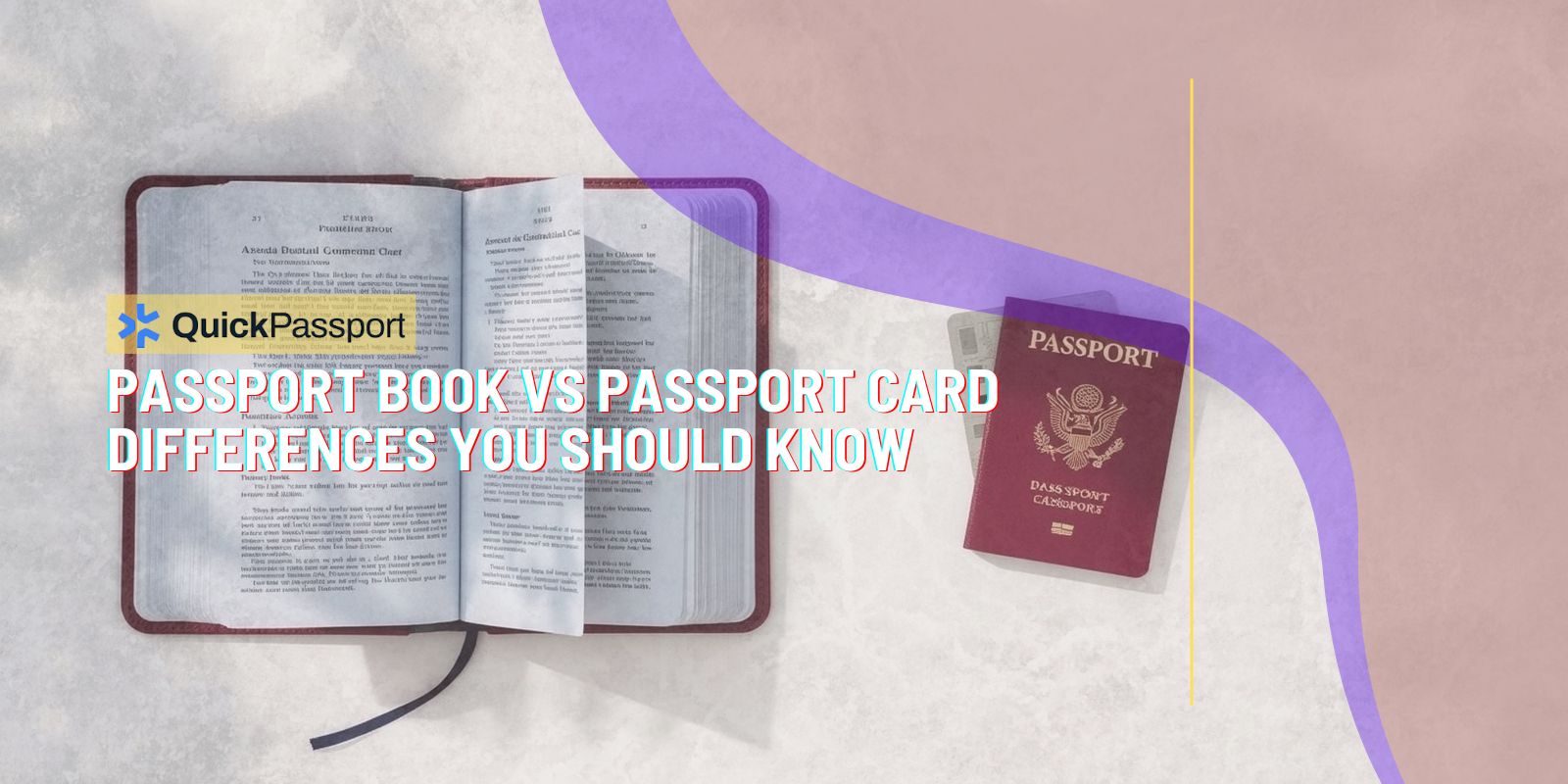Passport processing delays have become an increasingly common concern for travelers, creating uncertainty and stress for those planning international trips. Whether you’re applying for a new passport or renewing an existing one, understanding how to effectively monitor your application’s progress is crucial for managing expectations and making informed travel decisions. The ability to check for updates on passport processing delays can mean the difference between a smooth travel experience and last-minute complications that could derail your plans.
In today’s interconnected world, international travel has become more accessible than ever, but with increased demand comes the challenge of processing applications efficiently. Government agencies responsible for passport issuance often face overwhelming volumes of applications, particularly during peak travel seasons, leading to extended processing times that can stretch far beyond the standard timeframes. These delays can be particularly problematic for business travelers, families planning vacations, or individuals facing emergency travel situations.
The complexity of modern passport processing involves multiple verification steps, security checks, and administrative procedures that can create bottlenecks at various stages of the application process. Understanding these intricacies helps applicants better navigate the system and set realistic expectations for when their passport might be ready. Additionally, external factors such as staffing shortages, technology upgrades, or global events can significantly impact processing times, making it essential for applicants to stay informed about current conditions.
Fortunately, there are numerous resources and strategies available to help you track your passport application and stay updated on potential delays. From official government websites to third-party tracking services, applicants have access to tools that provide real-time information about their application status. However, knowing which resources to use, how to interpret the information provided, and when to take action requires a comprehensive understanding of the passport processing system and available monitoring options.
Key Takeaways
- Multiple tracking methods available: Use official government websites, phone hotlines, and email notifications to monitor your passport application status and stay informed about processing delays.
- Processing times vary significantly: Standard processing can take 6-11 weeks, while expedited services may take 3-5 weeks, with potential delays during peak seasons or due to unforeseen circumstances.
- Early application is crucial: Submit passport applications well in advance of planned travel dates to account for potential delays and avoid last-minute complications.
- Emergency services exist: Life-or-death emergencies and urgent travel situations may qualify for same-day or next-day passport processing through specialized services.
- Documentation affects processing speed: Complete, accurate applications with proper documentation move through the system faster than those requiring additional verification or corrections.
- Seasonal patterns impact timing: Spring and summer months typically see longer processing times due to increased travel demand, while winter months may offer faster processing.
- Professional assistance available: Passport expediting services like QuickPassport – Miami can help navigate complex situations and provide expert guidance on application status and delay management.
- Status updates provide actionable information: Understanding what different status messages mean helps you determine when to wait patiently versus when to take proactive steps.
Understanding Passport Processing Delays
Passport processing delays occur when applications take longer than the standard timeframes published by issuing authorities. These delays can stem from various factors, including increased application volumes, staffing limitations, security verification requirements, and administrative backlogs. Understanding the root causes of these delays helps applicants better prepare for potential extended waiting periods and make informed decisions about their travel plans.

The standard processing time for routine passport applications typically ranges from six to eleven weeks from the date of application submission. However, during peak travel seasons, such as spring and summer months, these timeframes can extend significantly as passport agencies struggle to keep pace with increased demand. Expedited processing, which costs an additional fee, generally reduces processing time to three to five weeks, but even expedited applications can experience delays during particularly busy periods.
Several factors contribute to processing delays beyond simple volume increases. Security screening procedures have become more comprehensive in recent years, requiring additional time for background checks and verification processes. Applications with incomplete documentation, unclear photographs, or discrepancies in personal information require manual review, which can add weeks to the processing timeline. Additionally, first-time applicants and those requiring name changes or other special circumstances typically face longer processing times due to additional verification requirements.
External factors can also significantly impact processing times. Government shutdowns, natural disasters, technology system upgrades, and global events can all disrupt normal operations and create substantial backlogs. The COVID-19 pandemic, for example, created unprecedented delays as passport agencies operated with reduced staff while simultaneously dealing with a surge in applications from travelers eager to resume international travel.
Official Government Tracking Resources
The most reliable source for checking passport processing delays and application status is the official government website maintained by the passport issuing authority. In the United States, the State Department’s travel.state.gov website provides comprehensive tracking tools and current processing time estimates. The online tracking system allows applicants to check their application status using their last name, date of birth, and either their Social Security number or the last four digits of their Social Security number.
The official tracking system provides several status categories that indicate where your application stands in the processing pipeline. “In Process” means your application has been received and is being reviewed, while “Approved” indicates that your passport has been printed and is being prepared for mailing. “Shipped” status means your passport is en route to your designated address, and you should receive tracking information for the delivery service used.
Government phone hotlines offer another avenue for checking application status and obtaining information about current processing delays. The National Passport Information Center provides automated and live agent services to help applicants track their applications and understand current processing conditions. However, phone lines can experience high call volumes during peak periods, potentially resulting in long wait times or busy signals.
Email notification services are available for applicants who prefer to receive automatic updates about their application status. These services send notifications when significant milestones are reached, such as when an application moves from “In Process” to “Approved” status. While convenient, email notifications may not provide the most up-to-date information, as there can be delays between status changes and notification delivery.
Regional passport agencies also maintain their own tracking systems and customer service resources. These agencies handle expedited applications and emergency passport services, often providing more personalized assistance for urgent situations. Contacting the specific agency handling your application can sometimes provide more detailed information about potential delays or special circumstances affecting your case.
Third-Party Tracking and Notification Services
Beyond official government resources, several third-party services have emerged to help applicants monitor passport processing delays and receive timely updates about their applications. These services often aggregate information from multiple sources and provide enhanced notification features that go beyond what government websites typically offer. While these services can be valuable supplements to official tracking methods, it’s important to understand their limitations and ensure they’re accessing legitimate data sources.
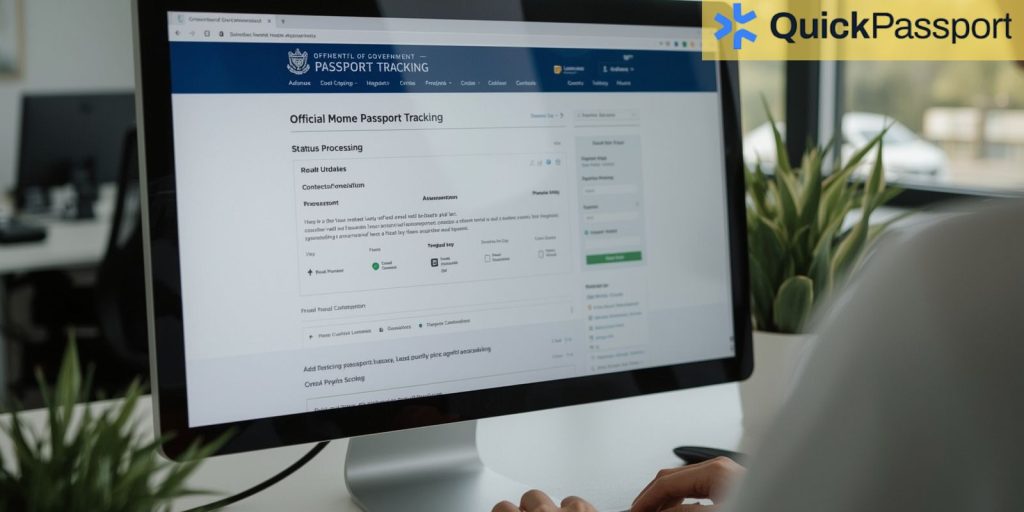
Professional passport expediting services like QuickPassport – Miami offer comprehensive tracking and monitoring services as part of their client support packages. These services often have established relationships with passport agencies and can provide insights into current processing conditions, potential delays, and strategies for expediting applications when necessary. Their expertise in navigating the passport system can be particularly valuable for complex cases or urgent travel situations.
Mobile applications and web-based tracking services have become increasingly popular for monitoring passport application status. These platforms often provide push notifications, email alerts, and text message updates when application status changes occur. Some services also offer predictive analytics that estimate likely completion dates based on current processing patterns and historical data.
Social media monitoring and community forums can provide valuable real-time information about processing delays and current conditions at various passport agencies. Travelers often share their experiences, processing times, and status updates on platforms like Reddit, Facebook groups, and travel forums. While this information should be considered anecdotal rather than official, it can provide useful insights into current processing patterns and potential issues.
Third-party services may also offer additional features such as processing time predictions, delay alerts, and comparison tools that help applicants understand how their processing timeline compares to current averages. However, it’s crucial to verify any information obtained from third-party sources with official government resources, as processing times and policies can change rapidly.
Interpreting Status Updates and Processing Stages
Understanding what different status updates mean is crucial for accurately assessing your passport application’s progress and identifying potential delays. Each status message represents a specific stage in the processing pipeline, and knowing what to expect at each stage helps applicants determine whether their application is progressing normally or experiencing delays that might require intervention.
The initial status, typically “Application Received” or “In Process,” indicates that your application has been logged into the system and assigned to a processing queue. This stage can last several weeks, particularly during busy periods, as applications are reviewed for completeness and accuracy. During this phase, passport agency staff verify that all required documentation has been submitted and that photographs meet current standards.
“Under Review” or “Processing” status indicates that your application has moved beyond initial intake and is undergoing detailed examination. This stage involves security background checks, verification of citizenship documents, and cross-referencing with various databases. Applications requiring additional verification, such as those involving name changes or first-time applicants, may remain in this status longer than routine renewals.
When an application reaches “Approved” status, it means that all verification processes have been completed successfully and your passport has been printed. However, this doesn’t mean your passport is immediately ready for pickup or shipment. There may be additional processing time for quality control checks, packaging, and coordination with delivery services.
“Shipped” or “Mailed” status indicates that your passport has left the processing facility and is en route to your designated address. At this point, you should receive tracking information from the delivery service, allowing you to monitor the final stage of the delivery process. Standard delivery typically takes 1-2 business days, while expedited delivery options may arrive the next business day.
Certain status messages may indicate problems or delays that require attention. “Additional Documentation Required” means that something is missing or unclear in your application, and processing cannot continue until the issue is resolved. “On Hold” status might indicate security concerns, verification issues, or administrative problems that require manual intervention. Understanding these status messages helps you determine when to take proactive steps versus when to wait patiently for normal processing to continue.
Proactive Strategies for Managing Delays
When facing passport processing delays, taking proactive steps can help minimize the impact on your travel plans and potentially expedite your application. The key is understanding which strategies are most effective for different types of delays and knowing when to escalate your concerns to higher levels of support.
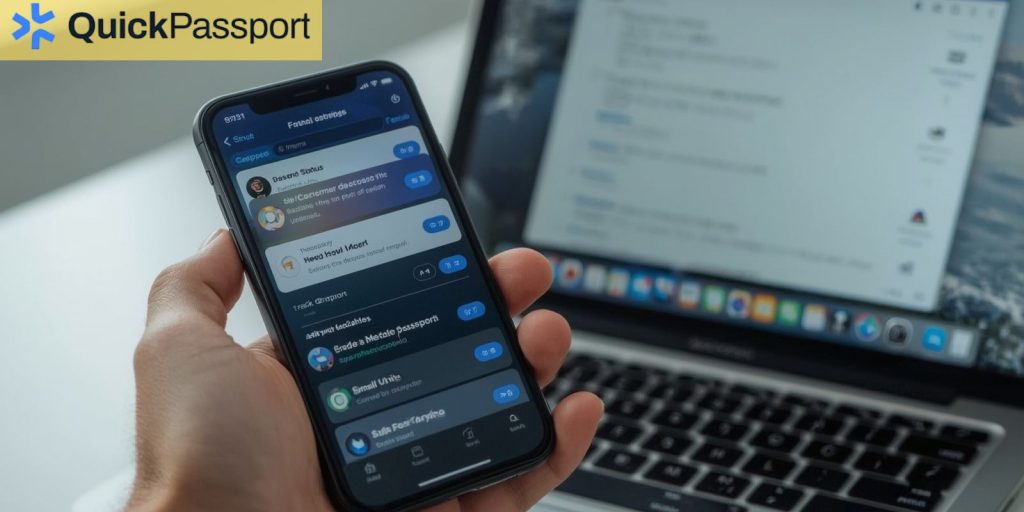
Contacting customer service representatives can sometimes provide additional insights into your application status and potential resolution timeframes. When calling, be prepared with your application number, personal information, and specific questions about your case. Document all interactions, including representative names, reference numbers, and any commitments made regarding follow-up actions or timeline estimates.
If your travel date is approaching and your passport hasn’t been processed, you may qualify for expedited services or emergency processing. Life-or-death emergencies, such as serious illness or death of immediate family members abroad, may qualify for same-day passport processing at regional agencies. Urgent travel for business or personal reasons may qualify for expedited processing with additional fees and documentation requirements.
Working with professional passport expediting services like QuickPassport – Miami can provide access to specialized knowledge and established relationships with passport agencies. These services often have insights into current processing conditions, alternative processing options, and strategies for navigating complex situations. They can also handle communication with passport agencies on your behalf, potentially saving time and reducing stress.
Preparing backup travel plans can help mitigate the impact of unexpected delays. This might include purchasing refundable tickets, obtaining travel insurance that covers passport delays, or identifying alternative destinations that don’t require passport renewal. Having contingency plans in place reduces the pressure to rush the passport process and provides peace of mind during uncertain waiting periods.
Gathering supporting documentation for potential expedited processing can help you act quickly if delays threaten your travel plans. This includes proof of travel arrangements, emergency documentation, and any special circumstances that might qualify you for accelerated processing. Having these documents ready allows you to quickly submit expedited requests without additional delays for document preparation.
Frequently Asked Questions
How often should I check my passport application status?
Check your application status weekly during normal processing periods, but avoid checking daily as updates typically occur in batches rather than continuously. More frequent checking during the final weeks before your travel date is reasonable.
What should I do if my application status hasn’t changed for several weeks?
If your status remains unchanged for more than two weeks beyond the estimated processing time, contact the National Passport Information Center or consider consulting with a professional service like QuickPassport – Miami for guidance.
Can I upgrade to expedited processing after submitting my application?
Yes, you can request expedited processing for an additional fee, but this option is only available if your application hasn’t entered the final production stages. Contact customer service to determine if this option is still available for your application.
What constitutes a life-or-death emergency for same-day passport processing?
Life-or-death emergencies typically include serious illness, injury, or death of immediate family members abroad. You’ll need to provide documentation such as medical records, death certificates, or statements from medical professionals.
How accurate are the processing time estimates on government websites?
Processing time estimates are updated regularly but represent averages rather than guarantees. During peak seasons or unusual circumstances, actual processing times may exceed published estimates significantly.
Will passport processing delays affect my travel insurance claims?
Some travel insurance policies cover trip cancellation or delay due to passport processing issues, but coverage varies by policy. Review your insurance terms or consult with your provider to understand your coverage options.
Can I track my passport delivery once it’s been shipped?
Yes, once your passport is shipped, you’ll receive tracking information from the delivery service. Standard delivery uses regular mail service, while expedited delivery typically uses trackable courier services.
What should I do if my passport doesn’t arrive by my travel date?
Contact the passport agency immediately to confirm shipping status and explore emergency options. You may need to visit a regional passport agency for emergency processing or consider postponing your travel plans.
Conclusion
Successfully navigating passport processing delays requires a combination of proactive planning, effective monitoring, and strategic response when issues arise. Understanding the various resources available for checking application status, from official government websites to professional expediting services, empowers applicants to stay informed and make educated decisions about their travel plans. The key to managing passport processing delays lies in early application submission, regular status monitoring, and having contingency plans in place for unexpected complications.
Professional services like QuickPassport – Miami provide valuable expertise and support for navigating complex passport situations, offering peace of mind for travelers facing tight deadlines or unusual circumstances. Their knowledge of current processing conditions and established relationships with passport agencies can be instrumental in resolving delays and ensuring successful passport issuance. Whether you’re dealing with routine processing or emergency situations, having access to professional guidance can make the difference between travel success and disappointment.
Remember that passport processing delays, while frustrating, are often manageable with the right approach and resources. By staying informed about your application status, understanding your options for expedited processing, and working with experienced professionals when necessary, you can minimize the impact of delays on your travel plans. The investment in proper monitoring and professional assistance often pays dividends in reduced stress and successful travel outcomes, making it a worthwhile consideration for any international traveler.

